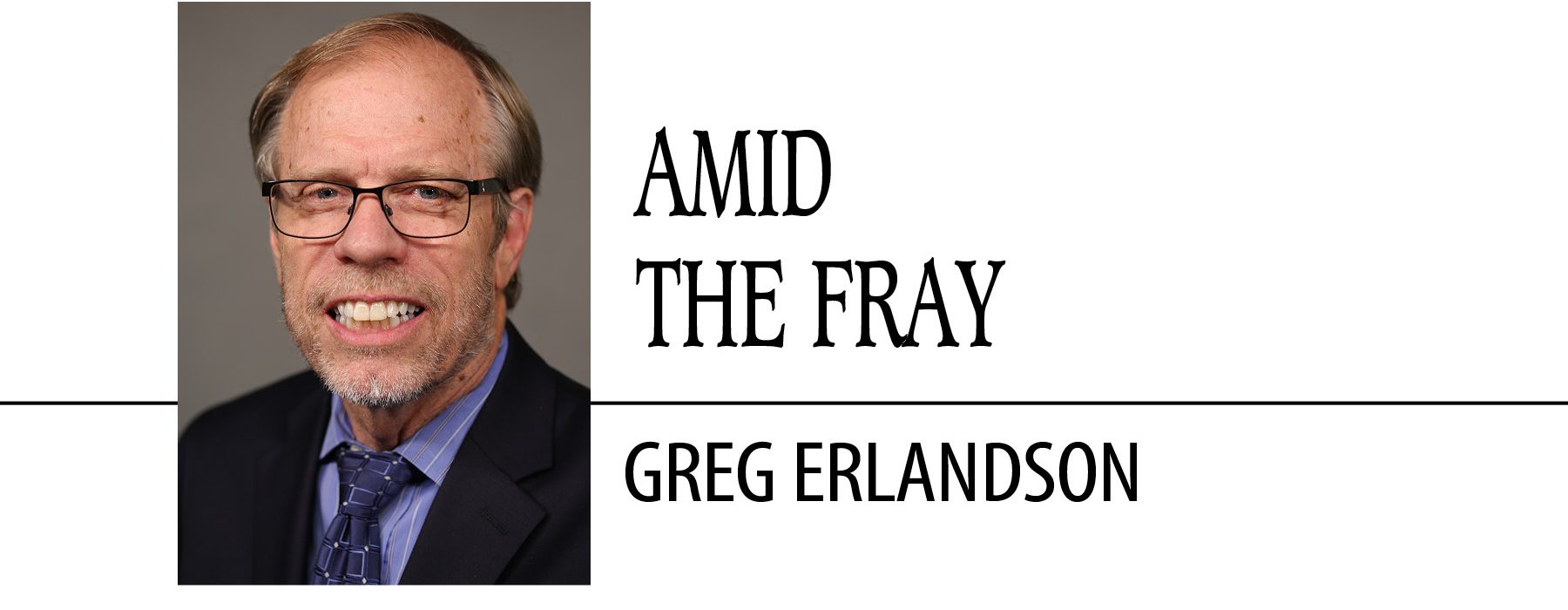January 4, 2022 // Perspective
In the storm’s wake, our neighbors need us
Christmas this year arrived amid shock and tears. The images of devastation wrought by at least 22 tornadoes slashing their way through Kentucky, Missouri, Arkansas and Illinois are etched in our national consciousness.
Nature unleashed a fearsome slaughter in our heartland. Stories of children sucked into the roaring night, of families huddling in bathrooms as the walls around them collapsed, are nightmares that will haunt those who experienced them and we who heard them.
It seems cruelly ironic that the disasters happened just as the Church was preparing to celebrate Gaudete Sunday, the time of joy as the commemoration of the birth of the Messiah draws near.
Crueler still, it happened only a few weeks before Christmas. Some of those injured and dead were working night shifts to make extra money for Christmas presents, their survivors told us, weeping.
“No more shall people call … your land ‘Desolate,’” Isaiah will tell us at the Christmas Vigil, yet desolate it is in Mayfield, Kentucky; Monette, Arkansas; Edwardsville, Illinois, and numerous other communities slashed by the storm.
The Christmas season with all its joy has always had a dark edge too. On the day after Christmas, St. Stephen’s Day celebrated the first martyr for the faith. Two days later there was the feast of the Holy Innocents, babes put to the sword by Herod’s soldiers.
In the midnight Christmas Mass, we read that “the people who walked in darkness have seen a great light.” The Messiah has come, yet in faith we realize that on this earth we still grapple with the darkness.
We built creches in our churches to mark the birth of Jesus, but they were built in the shadow of the crucifix. We know the triumph at the story’s end, but we also know the travails to come.
In a homily a few days after his diocese was hit by the storm, Bishop William F. Medley of Owensboro, Kentucky, noted this bond between the creche and the cross, saying, “The wood of the manger gives way to the wood of the cross. And the cross is in our churches year-round.” But then he added, “We can make our sufferings one in communion with Christ on the cross.”
The Church is nothing if not realistic. We will suffer, just as Our Lord suffered. Tragedies will befall us and our neighbors. We do not receive guarantees of safe passage in this life. Yet these tragedies also become opportunities of faith.
In Kentucky, Arkansas and Illinois, Americans rushed in to help. Parishes became centers of relief for broken neighborhoods. Volunteers provided food and shelter and even hunted for the scattered debris that once were people’s photos and books and mementos. The suffering of our neighbors becomes suffering we can help ease.
We all know the parable of the good Samaritan who helped the stranger left for dead. “To rebuild our wounded world,” Pope Francis writes in “Fratelli Tutti, on Fraternity and Social Friendship,” “our only course is to imitate the good Samaritan.”
We help the stranger we have not yet become friends with.
For many of us, all we can do is send prayers and money their way. Catholic Charities USA is collecting donations for people who have lost everything and whose needs are so great. If you’d like to send money, go to catholiccharitiesusa.org. The site has a button to hit to donate for tornado relief.
The good Samaritan donated money as well to help the wounded man. He also promised not to forget, telling the innkeeper he would be back. It is our responsibility as well not to forget. The towns will not be rebuilt overnight, the healing will take time.
Let’s remember our neighbors this Christmas season. Let’s not forget them come Easter.
Erlandson, director and editor-in-chief of Catholic News Service, can be reached at [email protected].
The best news. Delivered to your inbox.
Subscribe to our mailing list today.






